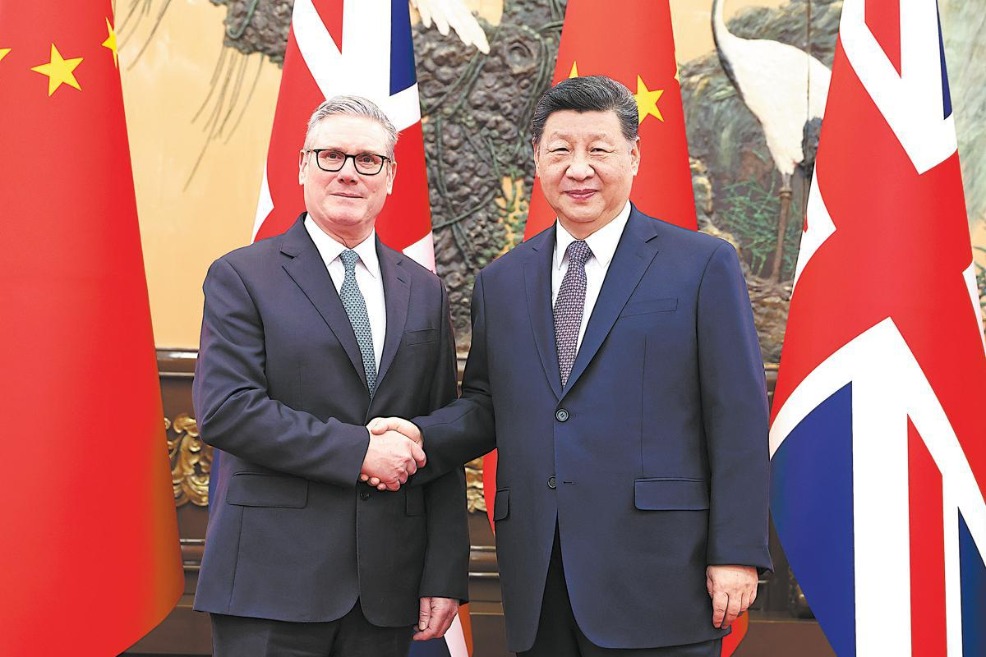How the space race starting gun was fired


Gagarin's landmark mission marked 60 years on
Sixty years ago this month, young Russian Yuri Gagarin became the first man to travel in space, beginning his mission by shouting poekhali, which translates as "let's go".
The Vostok 3KA-2 spacecraft carrying Gagarin, the 27-year-old son of a carpenter and a dairy farmer, took off from the Baikonur Cosmodrome in Kazakhstan, then part of the Soviet Union, on April 12, 1961.
Although the landmark mission lasted just one hour and 48 minutes, it fired the starting gun in the space race in the 1960s, which culminated with United States astronaut Neil Armstrong becoming the first person to step on the moon in 1969.
In early April 1961, the Cold War between the Soviet Union and the West was heating up. An attempt by US-backed Cuban exiles to invade Cuba's Bay of Pigs was just days away, and four months later, the Berlin Wall closed the Iron Curtain across Europe.
As the capsule carrying Gagarin back to Earth landed somewhat violently in a remote area in the southwest of the Soviet Union, the incident was watched in disbelief by an elderly farmer and her 5-year-old granddaughter.
Minutes later, the astronaut, wearing a silver spacesuit, emerged from the capsule and told the pair he had returned from space.
In an interview with the newspaper Moskovsky Komsomolets to mark the anniversary of the mission, the granddaughter, Rita Nurskanova, said that after seeing a flash of light and a spacesuit, her grandmother started to pray and wanted to flee the scene.
Gagarin calmed her down, saying he was human and "came from the sky," Nurskanova said. Her grandmother then helped him unfasten his helmet.
In his logbook, Gagarin later described the unexpected meeting. "I told them, 'don't be afraid, I am a Soviet like you-I have descended from space and I must find a telephone to call Moscow'."
US President John F. Kennedy sent a telegram congratulating Moscow on the achievement, with one Soviet newspaper headline stating, "America magnanimous in defeat."
However, a NASA report on Gagarin's accomplishment made no bones about the embarrassment felt in the US.
"About 4 am, telephones began buzzing up and down the east coast of the United States as reporters demanded responses from NASA officials," the report said.
Then-public affairs officer for NASA, John "Shorty" Powers, told reporters, "We are all asleep down here," resulting in a headline later that day stating: "Soviets put man in space: spokesman says US asleep".
Chief Soviet rocket engineer Sergei Korolev said that in choosing the man who would become the first human in space, the Soviet authorities wanted a skilled and experienced pilot willing to break new ground. Above all, they wanted a candidate who was short.
The first manned space mission used the tiny Vostok 1 craft, a spherical vessel just over 2.29 meters in diameter, calling for an astronaut no more than 1.7 meters tall and weighing a maximum of 72.1 kilograms. Standing just 1.57 meters, Gagarin was the perfect height for the spacecraft.
His charming smile also set him apart from the other contenders, Korolev said.
Gagarin's charming, engaging personality was reportedly capable of winning over even the sternest, most hard-nosed Russian, proving invaluable in improving the image of the Soviet government around the world.
Three months after his flight, Gagarin traveled to the United Kingdom, where he was given a hero's welcome, being greeted by Queen Elizabeth II and then-Prime Minister Harold Macmillan.
Despite torrential rain that accompanied his visit to the northern English city of Manchester, Gagarin insisted on traveling in an open-topped car without an umbrella. On arrival at his destination, a union headquarters, he waved to the crowds from a balcony. In turn, they greeted him like royalty.
Gurbir Singh, whose book A Smile That Changed the World recalls the visit, said, "He had experienced something no one else had experienced.
"Apart from the speed and altitude records he achieved, he'd also experienced a realm-space, microgravity, weightlessness-something no one had ever experienced, and for a few months, no one else would experience."
























